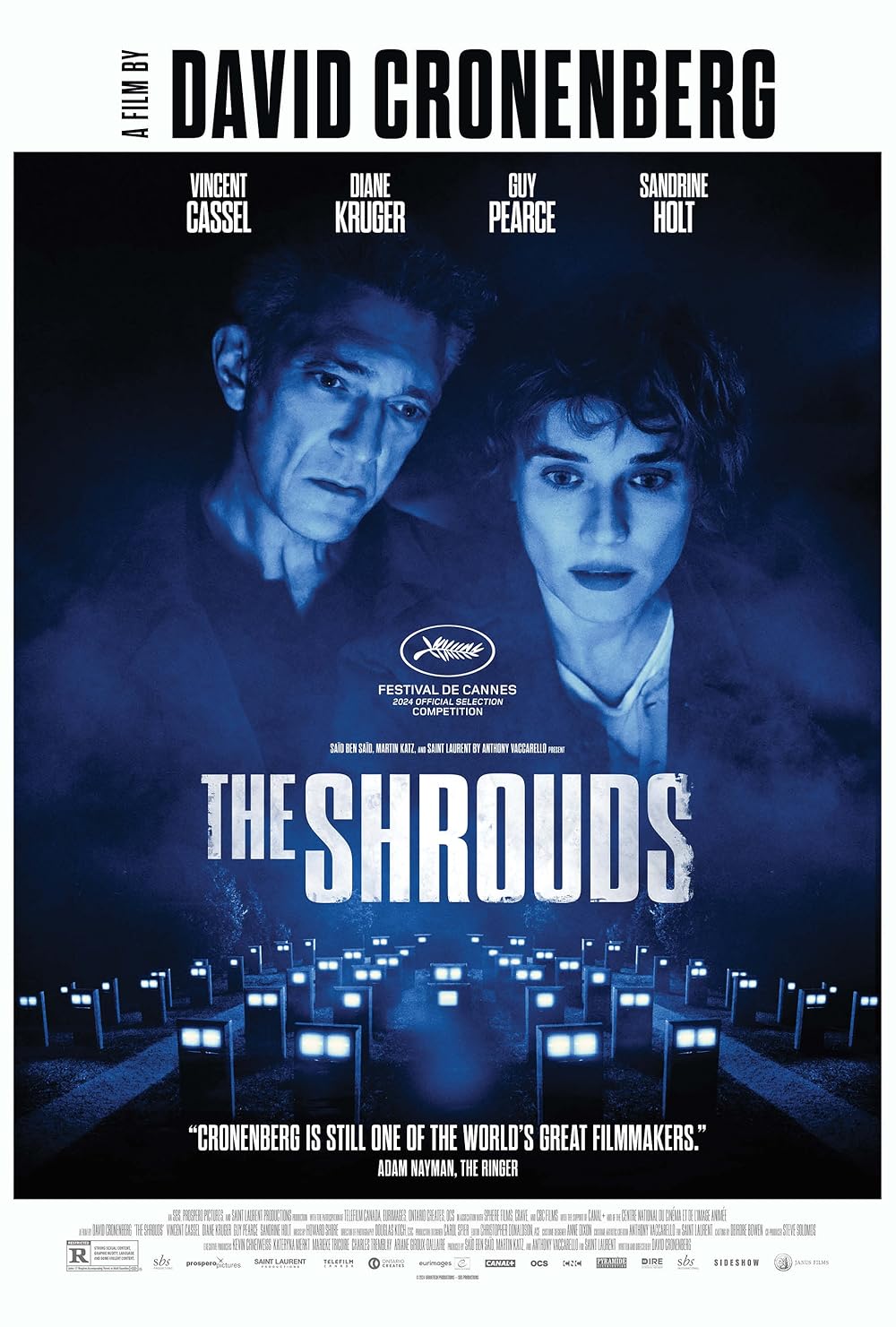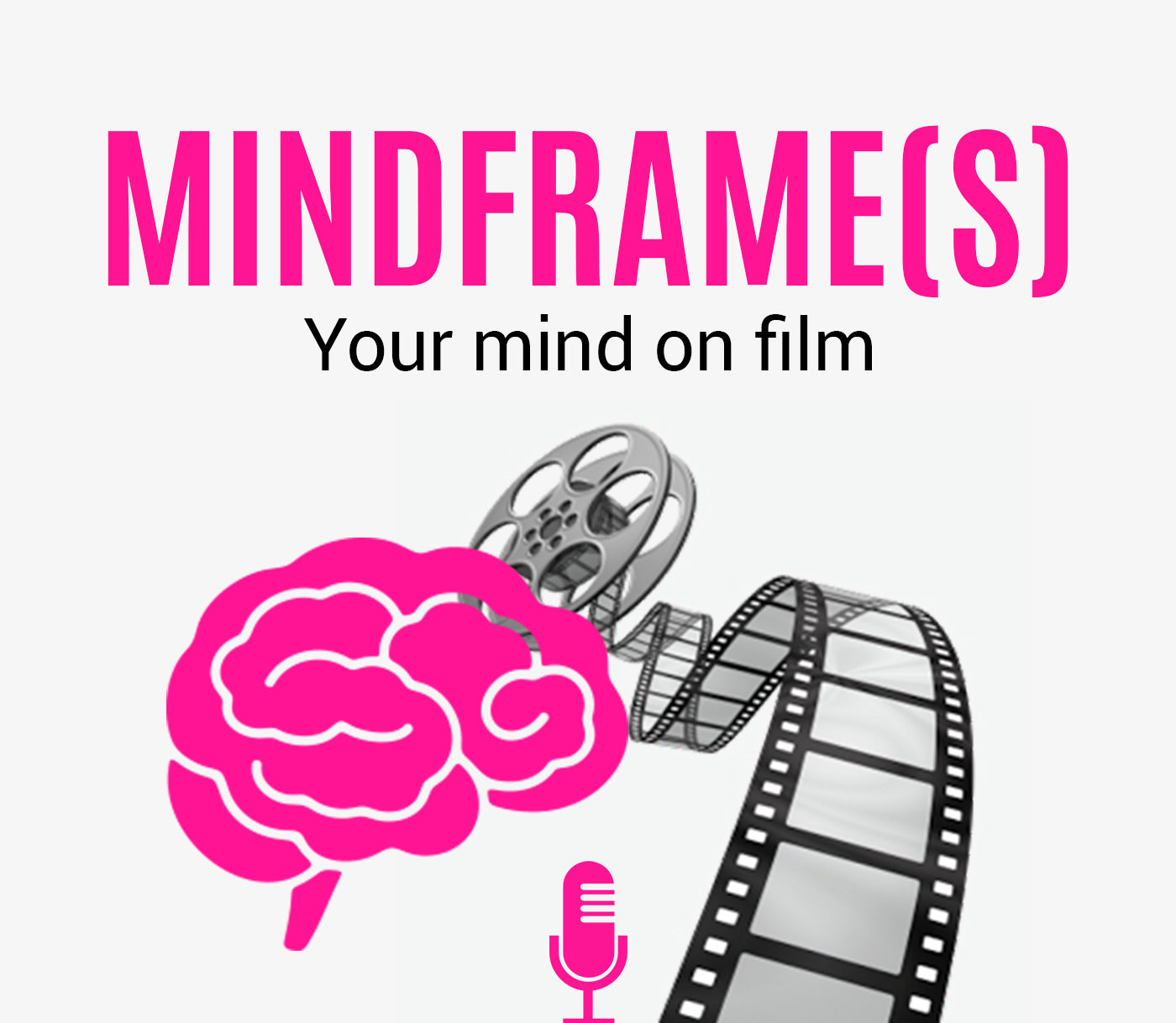
Certain directors always merit consideration. Certainly, belonging to this list would be David Cronenberg, who, despite his quirks, never makes an uninteresting film. This year’s entry in Cronenberg’s catalog is “The Shrouds,” a rumination on the intersection of technology and death. In what seems to be the near future or perhaps the present day, Karsh Relikh (Vincent Cassel) is still recovering from the death of his wife. The primary mechanism to heal he has chosen is an obsession with the details of her death, which has led to the creation of his technological business venture, GraveTech, the eponymous “shrouds.” The shrouds seem to be some technological blanket your recently deceased is wrapped in, allowing you to watch them decay in the grave later. It looks like a very pricey service, and the graveyard features a Michelin-quality restaurant to graze at before viewing the corpse of your loved one. Karsh subsequently finds himself in a tornado of conspiracy, secrecy, and betrayal, with his dead wife’s sister (Diane Kruger) and her ex (Guy Pearce).
The film is weakest when that conspiracy comes into focus or fails to come into focus. Whether this is intentional or not, whether we are to “embrace the mystery” or the clues are just too scattered, will be a matter of personal view. Possible foreign intelligence agencies, as the jealousies in Karsh’s personal life and wealthy backers, are involved. If the conspiracy plot was meant to immerse us in Karsh’s paranoid, grief-stricken mind, it leaves us chasing an overwhelming and frustrating trail of breadcrumbs.
While the plot may be more confusing than satisfying, the strength of the film and what makes it ultimately enjoyable are Cassel’s charisma and the somber, meditative tone evoked by stylistic choices. It will be no surprise to regular followers that I enjoyed Cassel, as I have been a fan of his since we were made to watch “La Haine” in my high school years. His ability to embody a suave yet depressed silver fox has only aged like fine French wine over the past few years. This character is not far removed from his portrayal of Serac in HBO’s “Westworld.” Both are obsessively building personal projects with profound moral questions surrounding the nature of the technologies. There are many scenes where the dialogue, lack of clarity of what transpires, or logical plot consistency may begin to stretch Cronenberg’s poetic license—Beneath Cassel’s charismatic surface and some unseen reality grounds the film.
The expert technical setting of mood complements Cassel’s subdued Karsh. Howard Shore’s synth-heavy score is the first element that shapes a sober tone. As Cassel and his entourage navigate the world filled with futuristic technology and minimalist design (yes, including a very much center-placed Tesla, yesterday’s car of the future), Shore’s score contains elements that feel both ancient funeral, such as nods to hymns, and futuristic, such as the synth-base to most tracks. What a perfect soundtrack to log in and watch a relative decompose.
David Cronenberg and cinematographer Douglas Koch also worked to create a minimalist and simple set design and lighting approach. Most interior scenes occur in dimly lit, quiet rooms; when not, the change brings attention to Karsh’s internal somberness. Cold symmetry and minimalism dominate Karsh’s interiors, and perhaps calling scenes like this sterile is a bit overused. It is worth mentioning that the initial scene and mood-setting moment take place in a dentist’s office.
If you are not alarmed by amputations (this is Cronenberg, after all) and can stand a plot where not all questions are answered, “The Shrouds” is a lesson in setting the cinematic mood.
